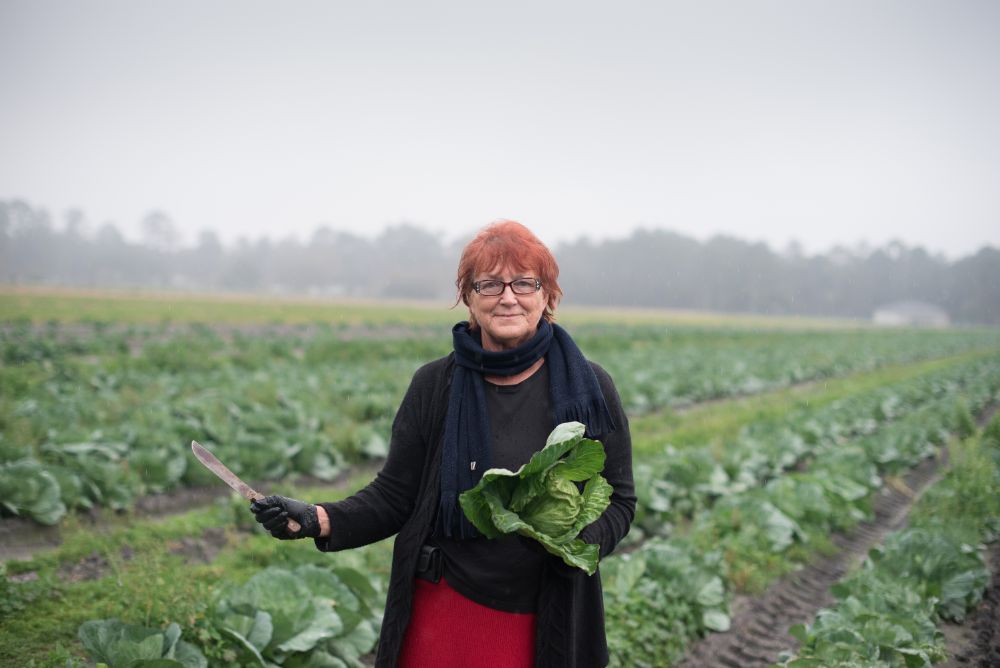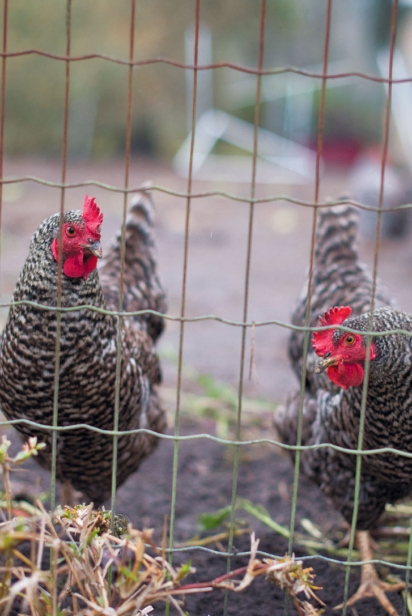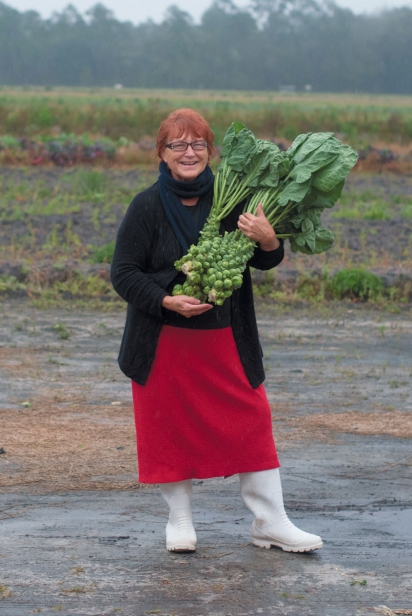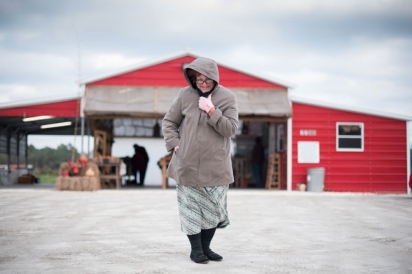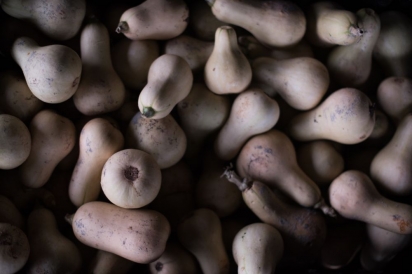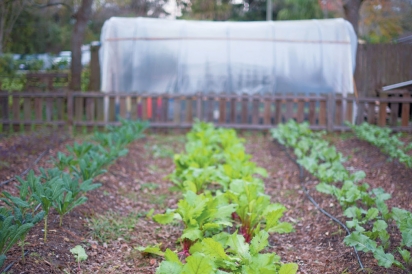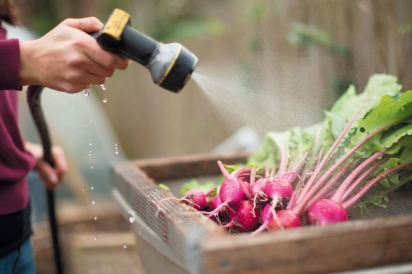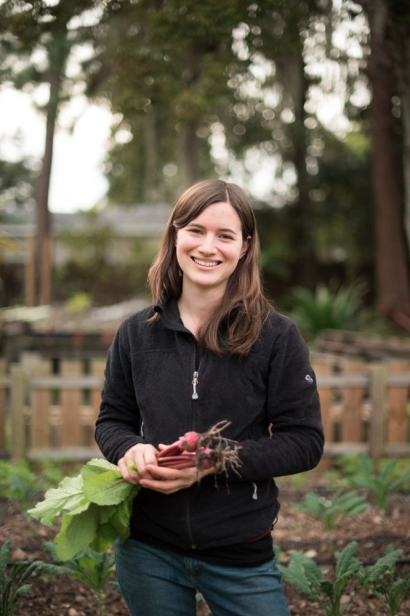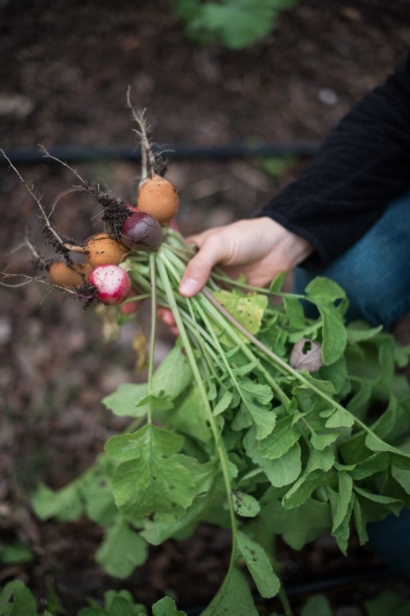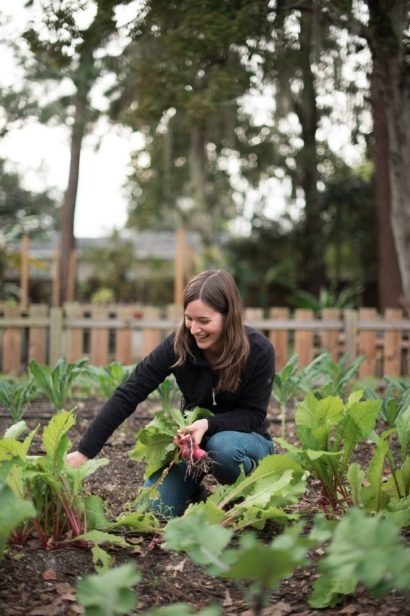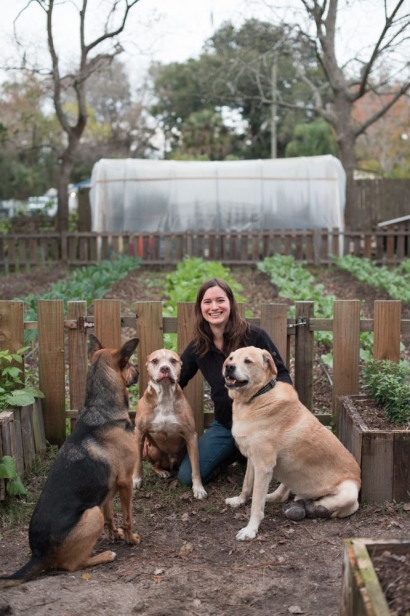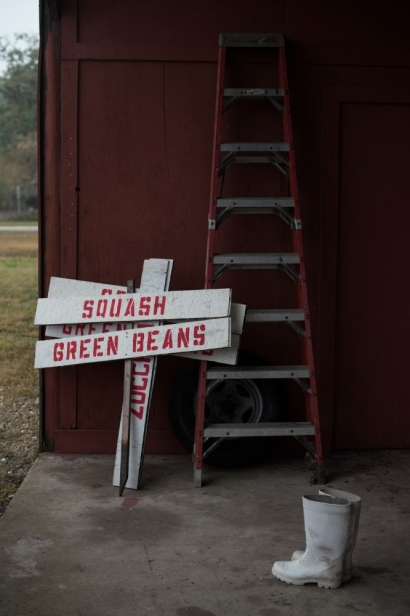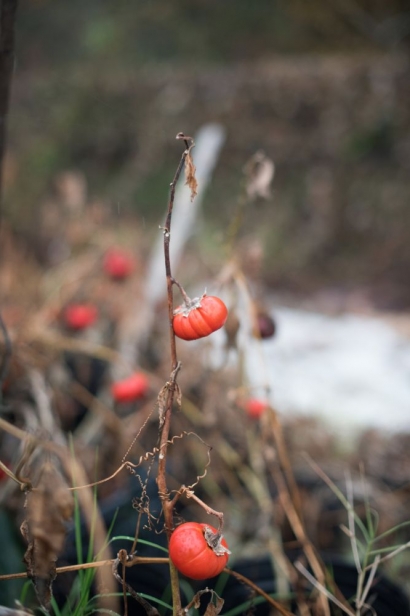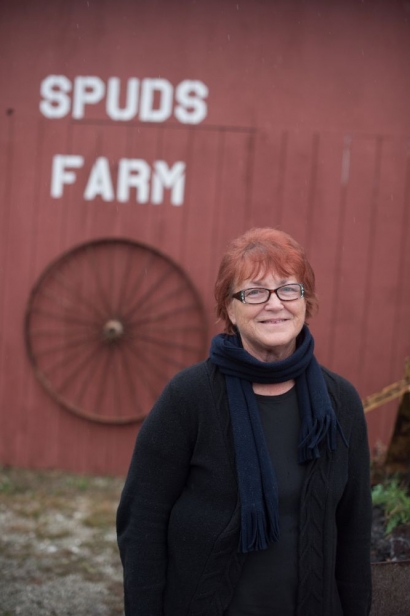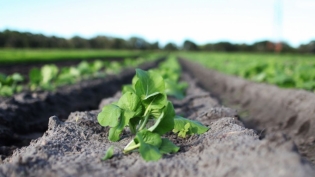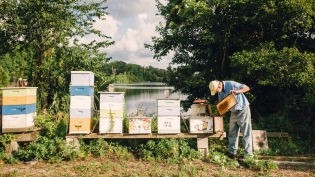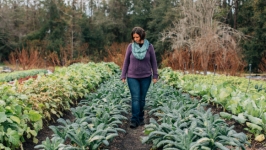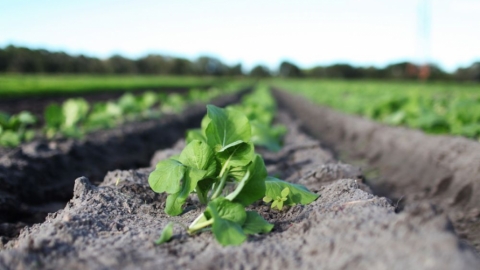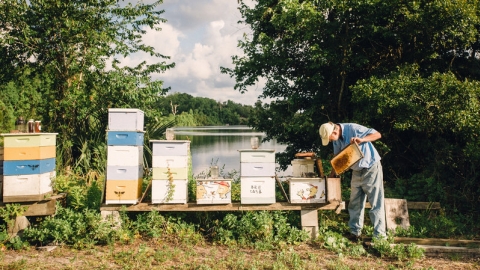Ladies of the Land
Close your eyes. Imagine the archetypal farmer. What do you see? A man wearing denim, hat perched his head? Is he driving a tractor, or standing in front of an endless field of corn and staring off into the middle distance?
This is not unfair, given the majority of American farmers are still men. But, it’s time to update that picture.
The US Department of Agriculture did not count women farmers before 2002. The most recent census of agriculture taken by the USDA in 2012 showed that 36% of farmers in Florida are women, above the national average of 30%. Let’s meet a few of the female hands that feed us here in the northeast part of the state.
MAVIS RENFROE — SPUDS FARM
Mavis Renfroe gets up at 5 every morning and heads to the kitchen. An average day’s tasks could include picking, washing and sorting veggies, prepping lunch for everyone at the farm, office work, baking pies and opening and overseeing the stand.
It’s a family operation at Elkton’s Spuds Farm, and Mavis, 68, is the matriarch. The farm has been in the family since the 1920s, producing cabbage for much of that time. Her children and grandchildren are involved in present-day operations as well.
The trials of Renfroe’s family? They are the trials of every family, really. Her husband died nearly 25 years ago, her daughter recently was diagnosed with leukemia. Not every family, however, has to worry about meteorological conditions affecting their livelihood.
“It’s a big gamble,” Renfroe says about farming. “You put your money in, you invest in it, but you have no control over the weather.”
Back in the time after her husband’s death (when Spuds Farm leased its land to another operation), Renfroe was a caregiver, mostly for folks with Alzheimer’s. She eventually burned out. The family collectively decided to farm their land themselves again, and diversified from cabbage to multiple vegetable crops.
Stop by the Spuds stand and you’ll probably see Mavis on the front lines. Quiet and trim, she’s the one with short auburn hair, straightening the veggies piled high on the tables, or working a puzzle book if you catch her in a rare quiet moment.
“I think people need to be aware of what they’re really eating.” Renfroe’s words are full of emotion. We discuss which vegetable is which, knowing your farmer, the outside chance that foods from afar may not be safe.
According to the FDA’s website, only somewhere between 1% and 2% of the over $2 trillion worth of food products that enter the US are inspected for safety. Be aware, indeed.
She is animated telling a story about an older woman shopping there who had no clue what okra was. Another recent Spuds customer had “absolutely no idea what to do with cauliflower.” A self-professed “down home” cook, Renfroe shared her three favorite ways to prepare it (two of which involve bacon grease, one a breaded and pan-fried cauliflower recipe she swears tastes like shrimp).
Spuds Farm took part in last autumn’s Tour de Farm, its first time involved in the Slow Food First Coast event. Renfroe’s worries about the day were for naught as the crowds had a good time. The family is excited about the possibility of adding new ventures like kayak tours out of nearby Deep Creek. And “I hope the farm continues to grow stronger in the future,” she says.
SHELBY STEC — DOG DAY GARDENS
Shelby Stec’s grandmother didn’t get why the 25-yearold was going to “throw her life away” pursuing agriculture as a career, and explicitly told her granddaughter she would not have helped her go to college if she had known. “She was pissed!” Stec laughs about it now.
Dog Day Gardens is a small urban homestead farm in west St. Augustine where Stec and her partner, Skylar Dixon, are throwing their lives away. There’s a nursery, a demonstration garden and, most recently, a compost program.
With services that include home gardening workshops and providing seedlings and compost for organic growers, Dog Day grows as much as possible for farmers’ markets and small restaurants as well. And yes, dogs are present there (three).
Stec’s grandma later came around after reading the dystopian novel The Hunger Games. She decided her granddaughter’s life choice “had meaning” after all, as Shelby could grow food for herself (in the event that a a crazy dictator takes over the world).
The generation Stec’s grandma comes from worked hard so their offspring wouldn’t have to live the life they did. Stec explains the “ideal lifestyle” aspiration for her grandparents consisted of commuting to a 9-to-5 job and sitting at a desk all day. However this is “the very thing that a lot of millennials are now trying to get away from,” she says.
Ask Mavis Renfroe if she’d encourage a little girl—say, one of her granddaughters—to pursue farming, and she says, “Farming is rough and tough. But I think it’s better to grow your own food.”
Stec has lived here for over two years, coming from the Tallahassee area by way of central Florida. When she began college as a social anthropology major, she assumed working at a large nonprofit was in her future. Real-world experience working at one changed her mind.
“I hated it,” she says. “What really pushes me is the love of being outside.”
At one point recently, living on a sailboat was a dream come true for Stec. She tried to grow plants while under sail, and would dump compost scraps and rake leaves over them in marina parking lots. Eventually it was brought to her attention that she’d have to choose between the land and the sea. Land won.
Shelby now works at Dog Day Gardens full time, while her partner Skyler still toils at his, as the couple puts it, “off-farm” job. They want to remain in the St. Augustine area and would love to buy property there. As word gets out about their venture she says, “We’re starting to build a really strong community here and there are so many like-minded people who are interested in doing the same thing themselves.”
“Every day I have someone stop and talk to me about how they’ve always wanted to have a garden, or how they wish there were better options for them to get local food without having to drive so far.”
MEGAN DEJONGE — BLUE SKY FARMS
Megan DeJonge is another young woman putting in long, hard hours to provide more locally grown food. Her checkered past work experience includes stints as a biohazard-cleaner of crime scenes, goat farmer and chef at a wine bar/restaurant. This daughter of a private investigator was interested in forensics, and armed with a criminal justice degree, moved to the area in 2014 (via Nashville, Boulder and Lakeland, FL).
Applications for positions at police departments and the criminal court system were in, but DeJonge needed cash to tide her over. She walked into Elkton’s Blue Sky Farms smack in the middle of potato season expecting to be hired as a potato grader. When management realized she was a college grad, she was put to work in the farm’s office doing data entry and logistics.
From day one at Blue Sky, she felt at home. By her first fall season there, DeJonge slotted into the garden sales and marketing manager position. “I plant the seed, watch it grow, harvest it with my crew, market it and sell it.” She says, “It’s the coolest job I’ve ever had.”
She now does everything including managing the field crew, office work, garden planning and handling the CSA customers. The former “trial” garden currently covers 50 acres, and the longtime potato farm has found success branching out and growing other veggies.
Has it been easy? DeJonge says she has faced a bit of discrimination as much for being younger (she’s 29) as for being a woman in this male-dominated field. She lets it roll off her back, preferring to be as prepared as she can and let her work do the talking.
When she first started, “There wasn’t a minute my eyes were open that I wasn’t studying,” learning as much as she could about the industry from the farm’s owner Danny Johns and the IFAS county extension.
“I always lose this thing,” DeJonge tracks down her dirty harvest knife. We hop into one of the farm’s pickups and bounce across the way to pick up the crew. The escarole and red romaine need to be transplanted.
WOMEN GROWING RESILIENT COMMUNITIES
To be alive in 21st century American society means it’s easy to overlook the fundamental link between us and our food. When we step into a sanitary, temperature-controlled grocery store to choose packs of uniformly sized vegetables plastic-shrink-wrapped onto Styrofoam trays, we may not think about the manual labor, the actual work, that brings food from the earth to our plates.
“I strongly support the idea of having a relationship with your grower,” Stec says.
DeJonge loves to hand over a box of produce to a customer and say “Here. This is what we grew. Enjoy this.”
Getting farm-fresh, locally grown vegetables and meat in our markets and restaurants has become easier than ever before. Women help cultivate and promote this food, and even show us how to grow it. Let us recognize this. Meet them at the market or, better yet, on their turf. They want to talk, share their knowledge and help connect you to what they are doing.
What will the next USDA census count in 2017 show? Time will tell, but for now, Northeast Florida is rife with ladies of the land, rookies and old timers, urban farmers, organic and conventional ones, and many in between. It is time to flip your image of the “average” farmer on its head. The face of agriculture is changing.


